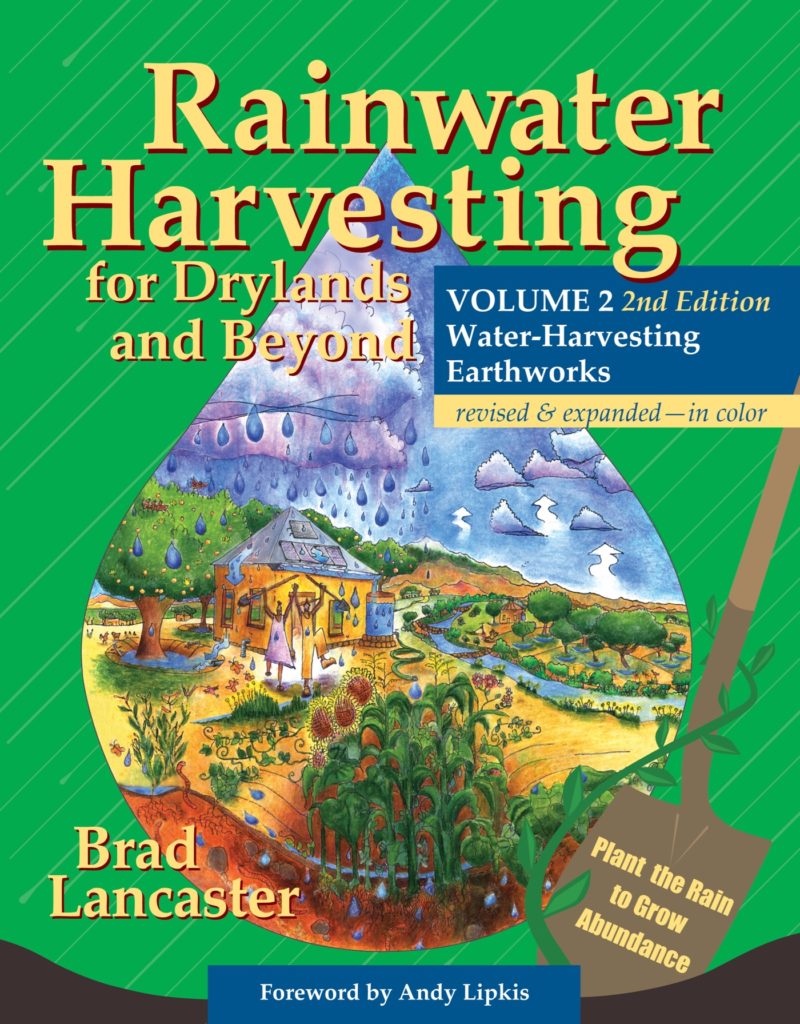Rain Beer
By Brad Lancaster
© 2010 www.HarvestingRainwater.com
Rainwater is known as “sweet water” throughout much of the world due to its pure “sweet” flavor when compared to brackish, alkaline, chemically-treated, or polluted ground and surface waters. Now it is also known as “beer water.” And folks, it is good – very good.
I sampled numerous pints of Golden Number Ale, a deliciously smooth beer made with rainwater harvested off the roof of the 5 Seasons Brewery in Atlanta, Georgia, while in town to attend the American Rainwater Catchment Systems Association (ARCSA) conference of 2009.
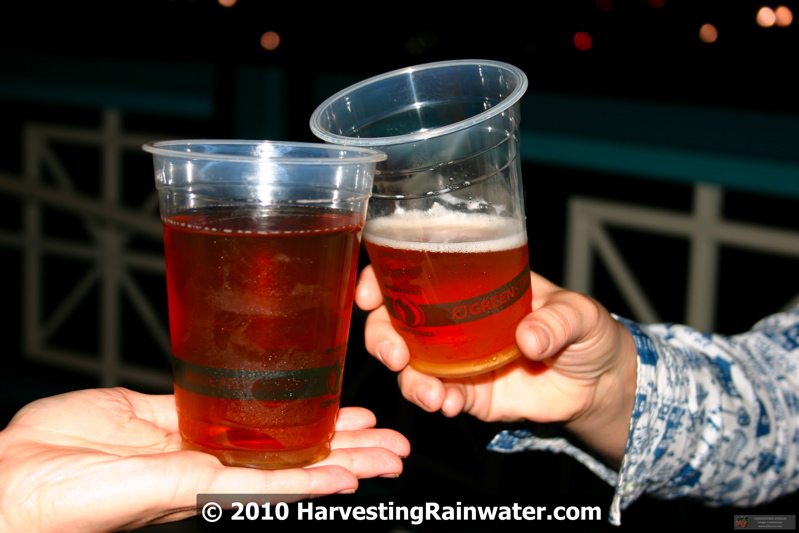
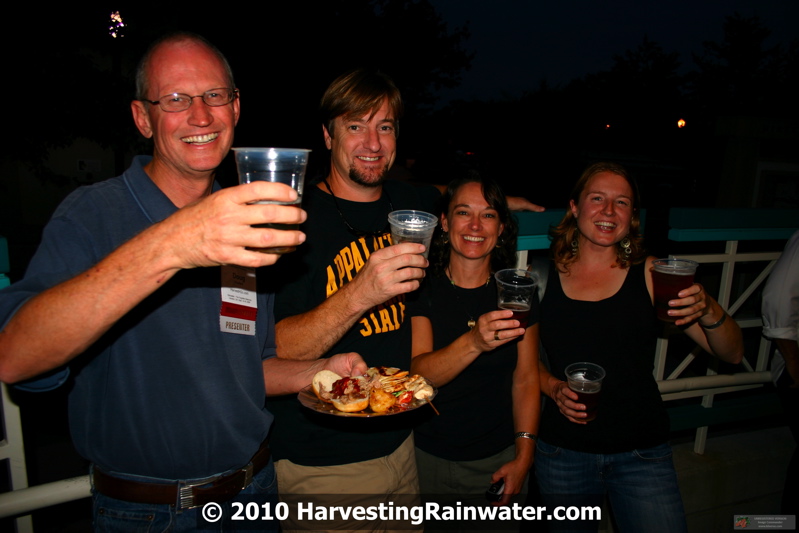
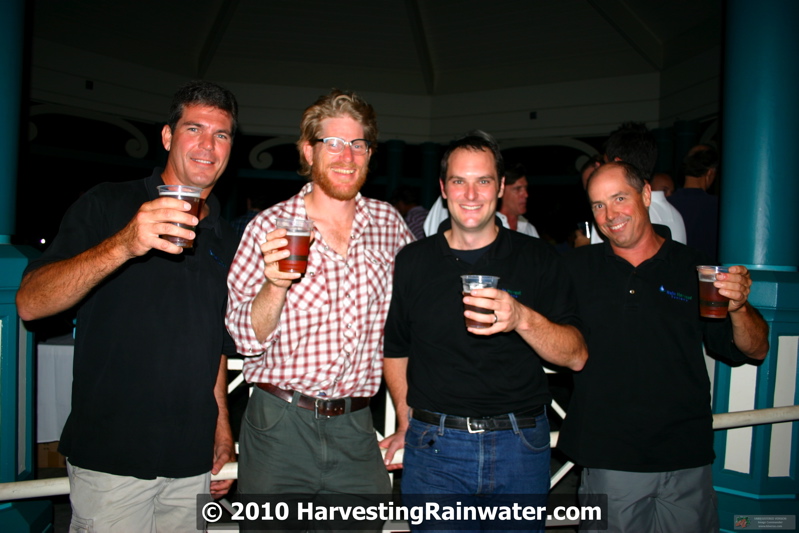
This rain beer was a first for the brewery, and a huge success. First off, water tests found the quality of the harvested water:
easily passed all EPA requirements, and
exceeded that of Atlanta’s municipal water (link).
The soft quality of rainwater is also superior for brewing, according to 5 Seasons’ master brewer, Crawford Moran, since it contains a fraction of the dissolved minerals of harder city water. Moreover, it is excellent drinking water. I found the taste of Atlanta’s tap water disgusting, but chugged down the sweet rainwater. And soon you may be able to as well, since 5 Seasons is looking into using rainwater for all its restaurant’s table water.
Secondly, the brew resulted in a flood of glowing media attention, including coverage by CNN, and a greater public awareness of the potential of rainwater collection.
Yet 5 Season’s harvesting practices go well beyond the beer.
It reuses the waste vegetable oil from the kitchen both to boil the blend of ingredients called “wort“ used to make beer, as well as to power its fleet of greasel-fueled catering vehicles.
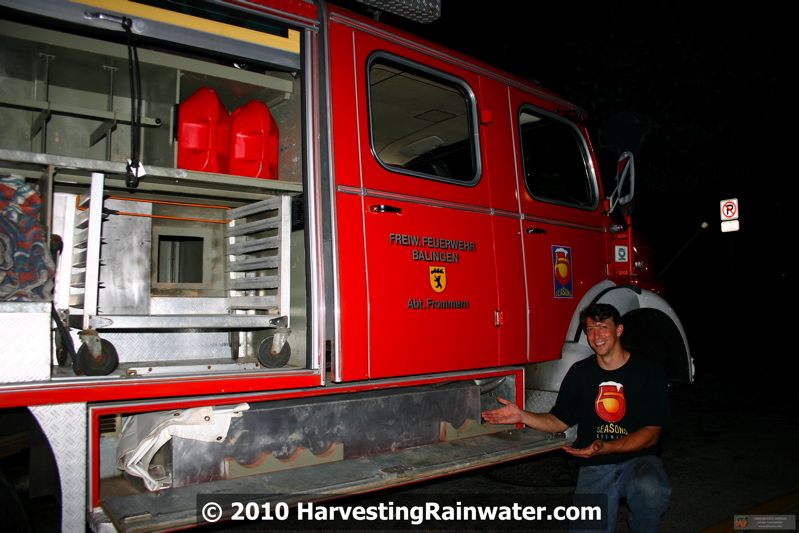
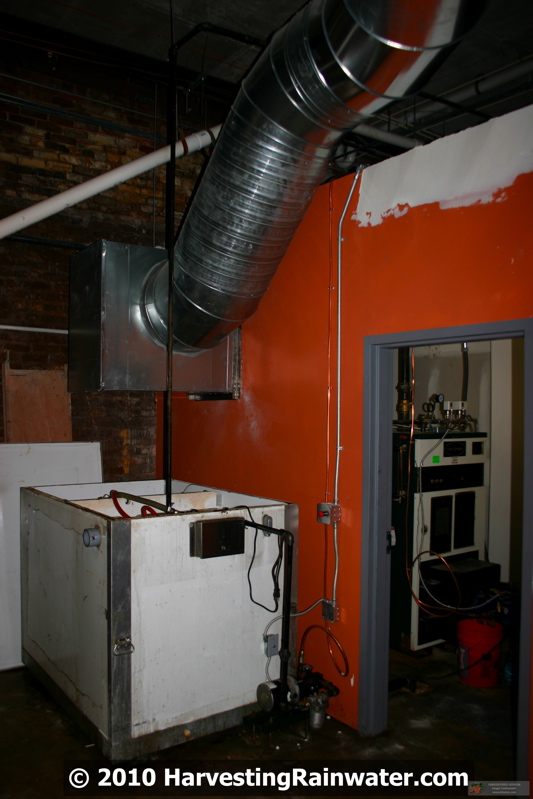
Some of the spent grain from the brewing process is then used to make bread served in the brewery’s restaurant. A local farmer takes the rest, composts it, and then returns the nutrients by providing the restaurant with locally grown organic produce. (Many friends and I have found the spent mash also makes a great free source of feed for chickens and goats).
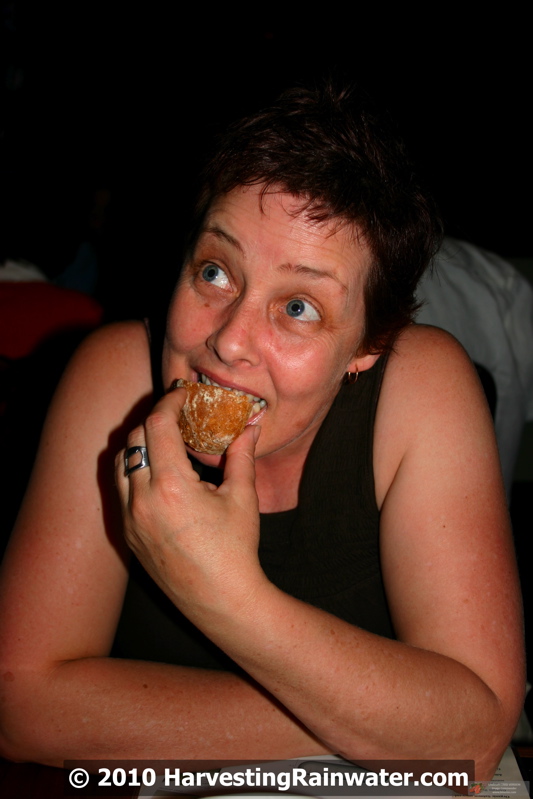
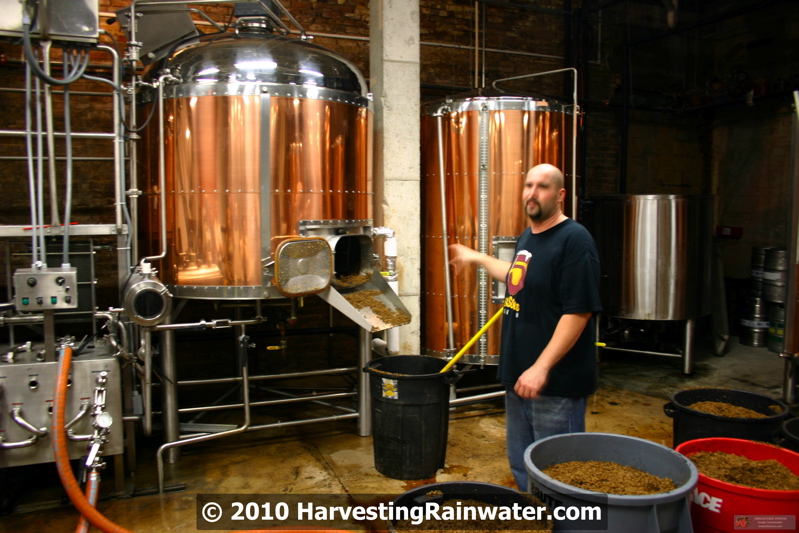
These practices connect/reconnect the brewery and its clientele with some of their local life cycles, resource bases, and community, while also enhancing resiliency in times of dwindling water. Atlanta gets much of its water by pumping in over-allocated Chatahoochee River water. Court battles with other communities using that water threaten to cut Atlanta off from its current take. But as long as it rains, there will be rain beer because it is made with 100% gravity-delivered rainwater collected and filtered on site.
Considering that Atlanta’s annual rainfall averages 50 inches (1,270 mm), that 5 Season’s water tank capacity is 850 gallons, and that the roof area draining to the tank is about 1,800 square feet (167 m2), brewmaster Moran figures that 5 Season’s set-up provides enough water to brew a batch of beer with every 30 minutes of rain (each batch requiring 650 gallons (2,460 liters) of rainwater.
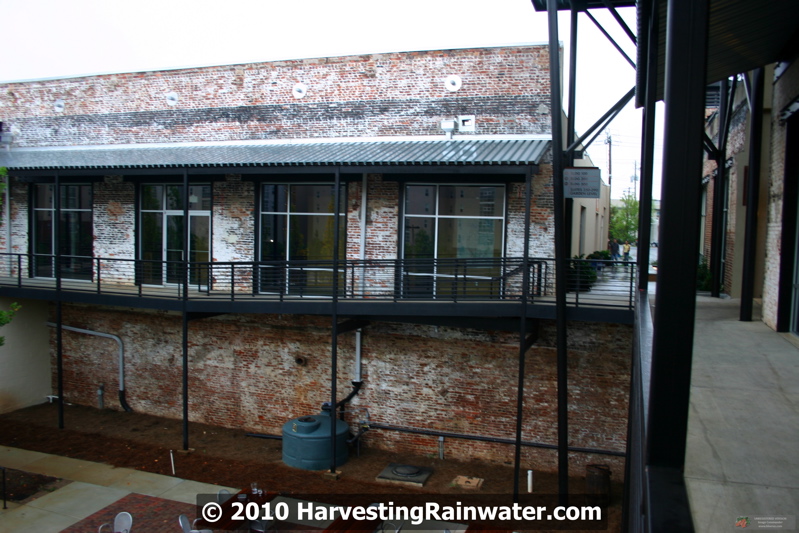
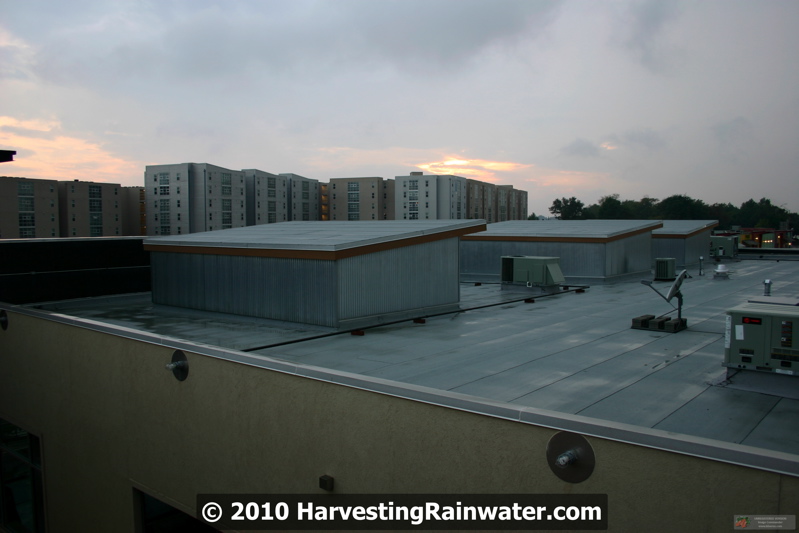
This is a boon in both dry and wet years. In dry years the rain beer production does not strain local water supplies. And in both wet and dry years the rain collection reduces the flooding threat for downstream areas of the community during storms by slowing, spreading, and sinking the water flow higher in the watershed through local beer.
This ratchets the brewery’s efforts in the slow food movement even higher into the realm of the growing slow water movement, both of which are renowned for delicious delights that celebrate and enhance local resources in a way that is a bun dancing fun!
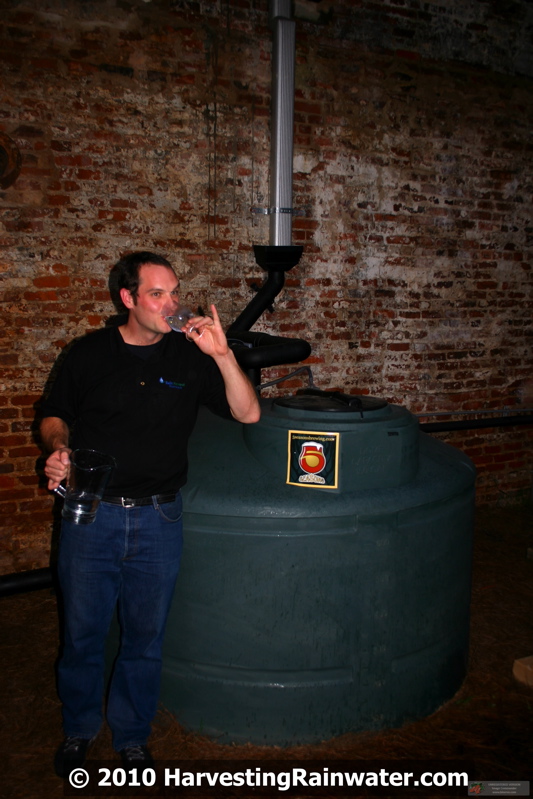
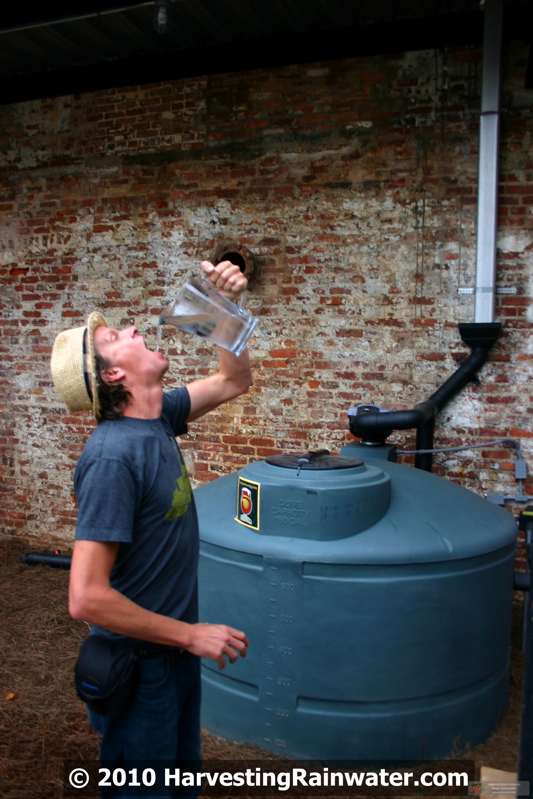
Details:
RainHarvest, a nearby locally owned business, provided 5 Seasons Brewery with all the equipment needed to harvest the rain, including 6 stages of filtration followed by dual-beam ultraviolet sterilization. The primary system components include:
• Leaf Eater preliminary leaf and debris filter
• 4″ First Flush Diverter
• Graf Optimx Pro filter
• Rainwater collection tank (existing tank is being upgraded to larger size)
• Graf 1″ floating extraction filter
• Goulds 1/2 Horsepower Pump
• SmartPress Pump Controller
• Two Full Flow 20″ Filter Units ((1) 5 micron particle filter and (1) 1 micron absolute carbon block)
• UV Pure Dual-beam UV Sterilizer
For more info on this system, water tests, and RainHarvest see:
www.RainHarvest.com/info/beer
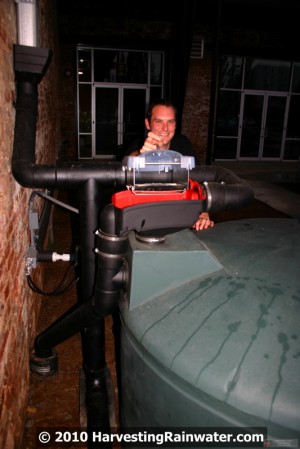
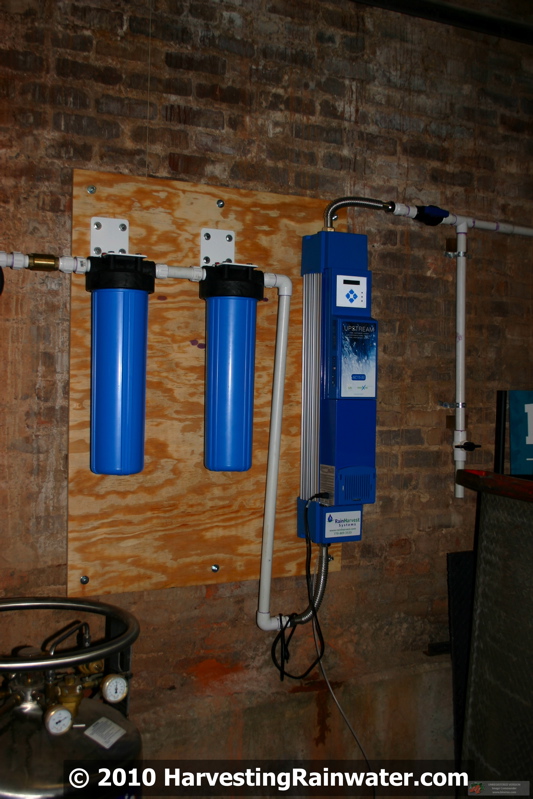
Update: April 2010
Two months after my visit to the 5 Seasons Brewery, the Fulton County Health Department shut down the production of rain beer. According to Russ Jackson of RainHarvest Systems, the Health Department had no legal ability to do so, and thus it (who?) pushed the case up the chain to the Georgia Environmental Protection Division (GEPD). The GEPD then claimed that the rainwater harvesting system was a public water system, so 5 Seasons would need a permit to operate a public water system. But there is no infrastructure within the GEPD to address rainwater as a source for a public water system. Rather than adopt the necessary codes/guidelines /etc., the GEPD has said that this matter is out of their jurisdiction. So for right now, 5 Seasons is unable to operate their rain brew system, since the bureaucracy has not expanded its box to incorporate the out-of-the-box rainwater-harvesting – despite the fact that the harvested and filtered rainwater quality exceeds the municipal water system’s water quality.
But 5 Seasons Brewery and RainHarvest Systems are not giving up. Stay tuned for the next development.
See the new, full-color, revised editions of Brad’s award-winning books
– available a deep discount, direct from Brad:
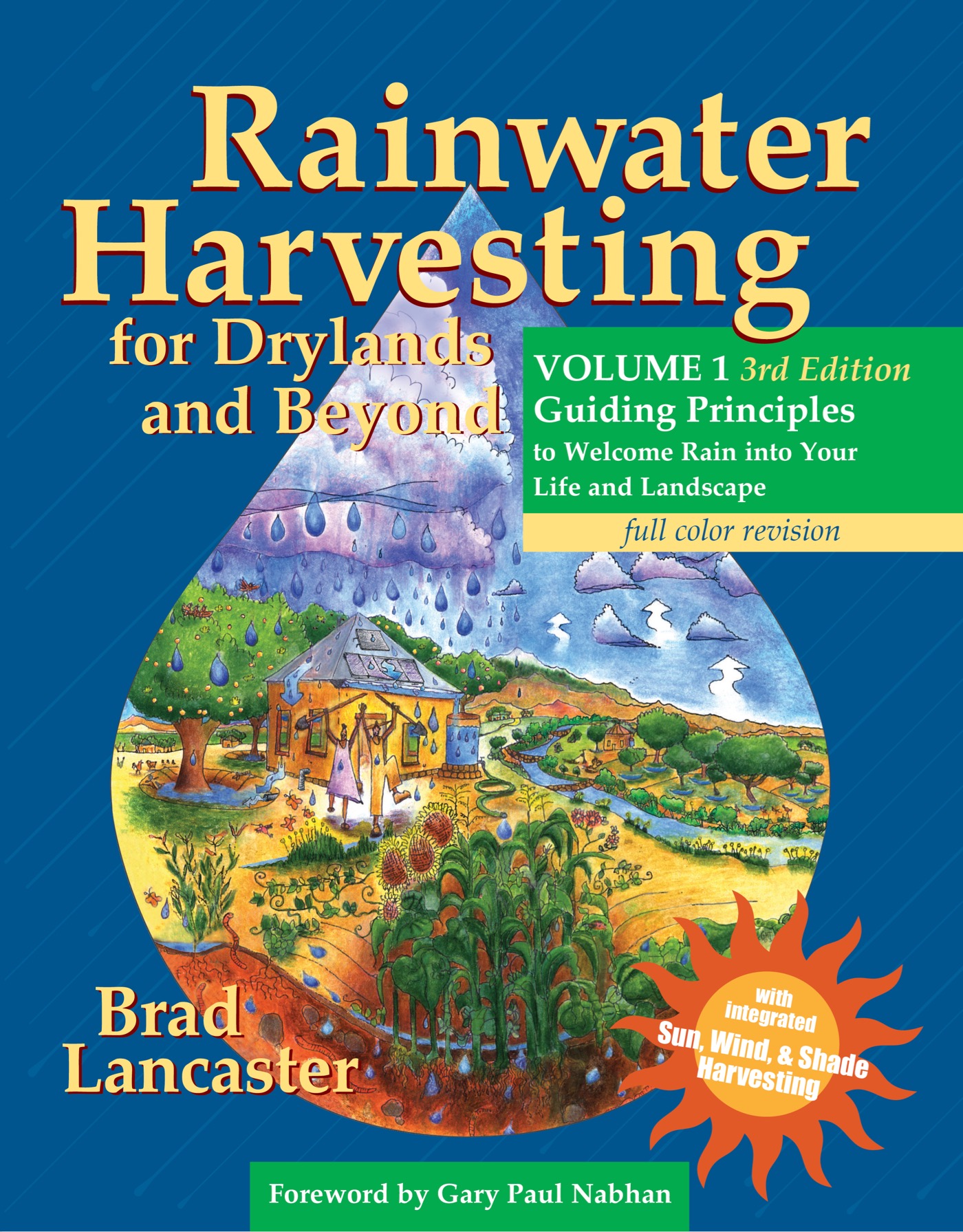
Volume 1
